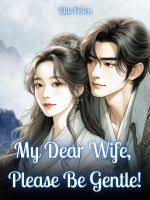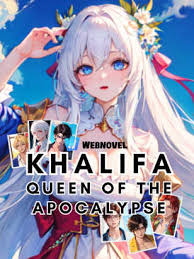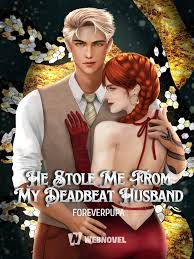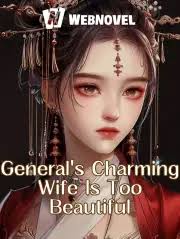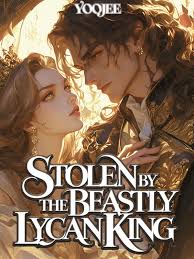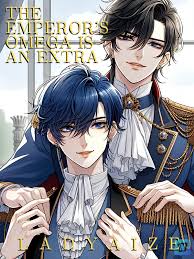The Story in 3 Sentences
A modern woman transmigrates into the body of a despised, foolish bride sold for a single tael of silver in a harsh historical world.
She must navigate poverty, a broken husband, and dangerous court politics while using her modern knowledge to survive and reshape her fate.
Her journey transforms her from a pitied outcast into a respected matriarch whose influence ripples through noble houses and imperial circles.
Why It Stands Out
1. From Tael of Silver to Empire of Respect
The novel’s core appeal lies in its unflinching yet hopeful rags-to-riches arc. The protagonist begins with nothing—not beauty, not status, not even basic competence in her new world—and builds everything through sheer wit, resilience, and an unyielding moral compass. Her victories feel earned, not handed to her by plot armor.
2. Romance Forged in Fire, Not Fantasy
Unlike many transmigration romances that rely on instant attraction or overpowered male leads, the central relationship develops slowly through shared hardship. The husband’s initial brokenness and the wife’s pragmatic care create a dynamic that’s tender, realistic, and deeply satisfying as they heal and grow together.
3. A Historical Canvas with Modern Heart
The story uses its historical setting not just as backdrop but as a crucible. It explores class disparity, gender roles, and political intrigue with a modern sensibility, allowing the protagonist’s contemporary knowledge to challenge and subtly reform the world around her without breaking its internal logic.
Characters That Leave a Mark
There’s Qiao Duo’er – the transmigrated protagonist whose sharp mind and hidden strength turn her from a mocked bride into a formidable force, though she remains the central figure and is not detailed here per instructions.
You’ll meet Prince Liang, who emerges as a key political player whose alliance with the protagonist’s family becomes crucial in navigating the treacherous waters of the imperial court, often acting as a protector and strategic partner.
And Li Mu’er? They’re the one who serves as a persistent antagonist, a figure from the shadows whose schemes and attempts on the family’s life create recurring tension and danger, forcing the protagonists to remain vigilant and clever.
The Flaws Fans Debate
The pacing can feel uneven, with long stretches of domestic life occasionally interrupted by sudden, high-stakes political drama that may seem disconnected from the established tone.
Some readers find the protagonist’s modern solutions to historical problems to be overly simplistic or anachronistic, stretching the story’s internal believability.
The large cast of secondary characters can sometimes blur together, making it hard to keep track of their individual motivations and roles in the sprawling narrative.
Must-Experience Arcs
Ch. 1–50: A Bride for One Tael – The protagonist awakens in a hostile new world, sold into marriage with a crippled man, and must use her wits to survive her first days of poverty and scorn.
Ch. 500–600: The Scholar’s Sister Gambit – Navigating complex social hierarchies, the protagonist leverages her knowledge to secure a better future for her family, engaging in a delicate game of reputation and influence that brings her into contact with the scholarly elite.
Ch. 1100–1200: Pretense of Obedience – As court politics reach a boiling point, the family must walk a razor’s edge of loyalty and deception, with Prince Liang’s faction and Li Mu’er’s machinations colliding in a tense arc of secret defiance and public performance.
Killer Quotes
“Better to die early than live a life of silent suffering.”
“Love arises unknowingly, like a flower in the desert you never knew you were watering.”
Cultural Impact
The novel has garnered over 1.7 million views on Webnovel, indicating a substantial and dedicated readership.
Its premise of a transmigrated farm wife using modern knowledge has become a popular trope within its niche, inspiring numerous fan discussions and similar story concepts.
The title itself has become a recognizable phrase among fans of the historical romance and transmigration genres, often used as shorthand for a specific kind of resilient female lead.
Final Verdict
Start Here If You Want:
A deeply satisfying underdog story where intelligence and kindness are the ultimate power-ups.
A slow-burn romance that feels authentic because it’s built on mutual respect and shared struggle, not just physical attraction.
A historical drama that uses its setting to explore themes of agency, class, and resilience in a way that feels both immersive and relevant.
Study If You Love:
The narrative mechanics of the transmigration genre and how it’s used to critique and navigate historical social structures.
The evolution of the female lead from a passive victim to an active architect of her own destiny within a patriarchal society.
The interplay between domestic life and high-stakes political intrigue as two sides of the same survival coin in historical fiction.
Avoid If You Prefer:
Fast-paced, action-driven plots with minimal focus on daily life and relationship-building.
Stories where the protagonist is immediately powerful or gifted with supernatural abilities.
Narratives that avoid mature themes or romantic subplots, as this novel is firmly rooted in its adult, romance-focused genre.
